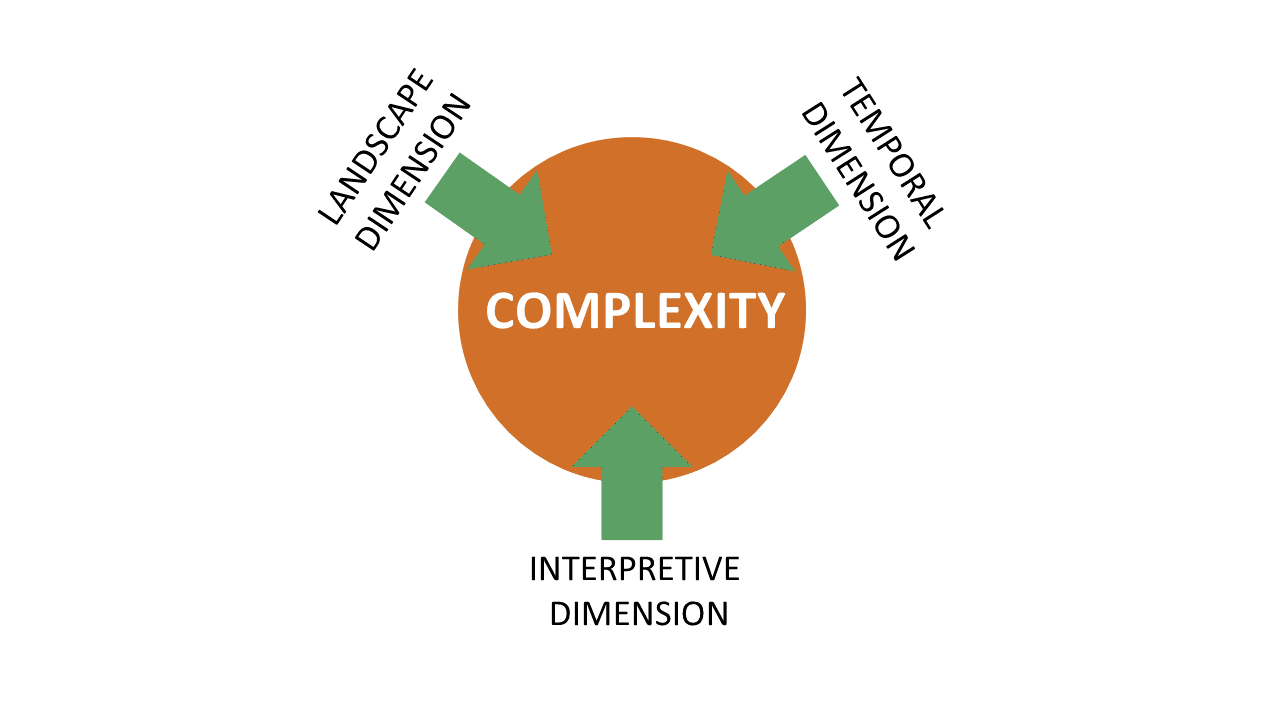Complexity seen through the "Landscape, temporal and interpretive" (LTI) Lens
Responding to complexity lies at the root of adaptation, but it can be unnerving. Understandably, policy makers and professionals may prefer to believe that plans reliably translate into action. Standard practices typically dictate that we hardwire assumptions of predictability into everything from requests for proposals and workplans to logic frameworks and budgets. But this can be an unproductive fiction when looking for real-world impact. Syntegral’s approach starts, therefore, with the belief that complexity is not a threat to be avoided but an inevitability to be managed.
“Complexity is not a threat to be avoided but an inevitability to be managed.”
In our approach to strengthening adaptive capacity, Syntegral has tried to pare down issues of complexity in a way that makes the application of ideas about complexity more obvious and operable. Our LTI (landscape, temporal and interpretive) lens on complexity proposes that there are fundamentally three dimensions of complexity that we need to recognize in program implementation.
The first is the Landscape Dimension which is comprised of those variables that often what comes to mind when we think of the “context” while surveying the landscape of an intervention—resources, demographics, workforce, community structures, commodities, etc.
The second is the Temporal Dimension which refers to the dynamism and the ever-shifting value of landscape variables across time. Mainstream implementation science has long recognized the need for mixed methods and longitudinal studies to address these first two dimensions of complexity even if the response is often piecemeal and inconsistently applied.
And finally, one of the key—and distinctive—principles of the LTI model is Syntegral's emphasis on the Interpretive Dimension of complexity: the fact that inputs and the meaning of inputs are perceived and interpreted differently by each observer. Failure to account for the fact that understandings of key ideas and perceptions of priorities, values, and relevance vary from person to person is perhaps the least examined in the study of complex systems, but in our long experience as implementers and managers, poses the greatest risk to sustained impact and scale-up. The importance of sharing understandings and perceptions are thus at the heart of Syntegral’s work on adaptive capacity.
As the logic behind the Syntegral approach suggests, a workable notion of complexity is the bedrock upon which adaptive capacity is strengthened. This LTI lens guides the development and application of most of Syntegral's tools to ensure that implementers and stakeholders consider how different variables come together in any program or activity.



